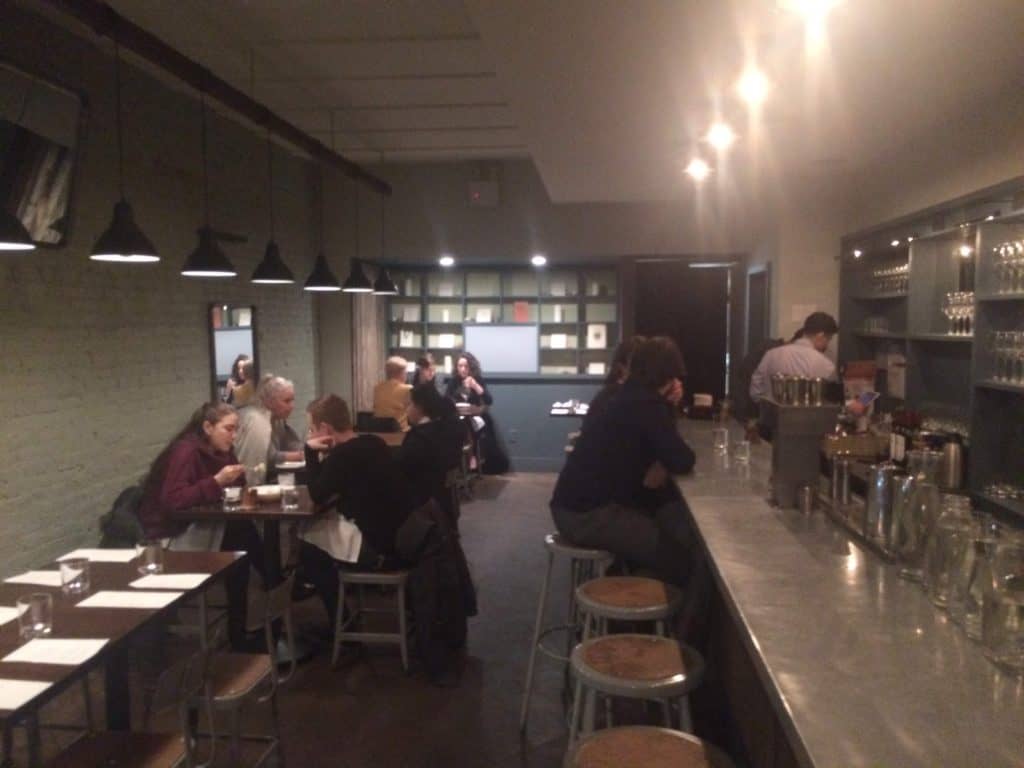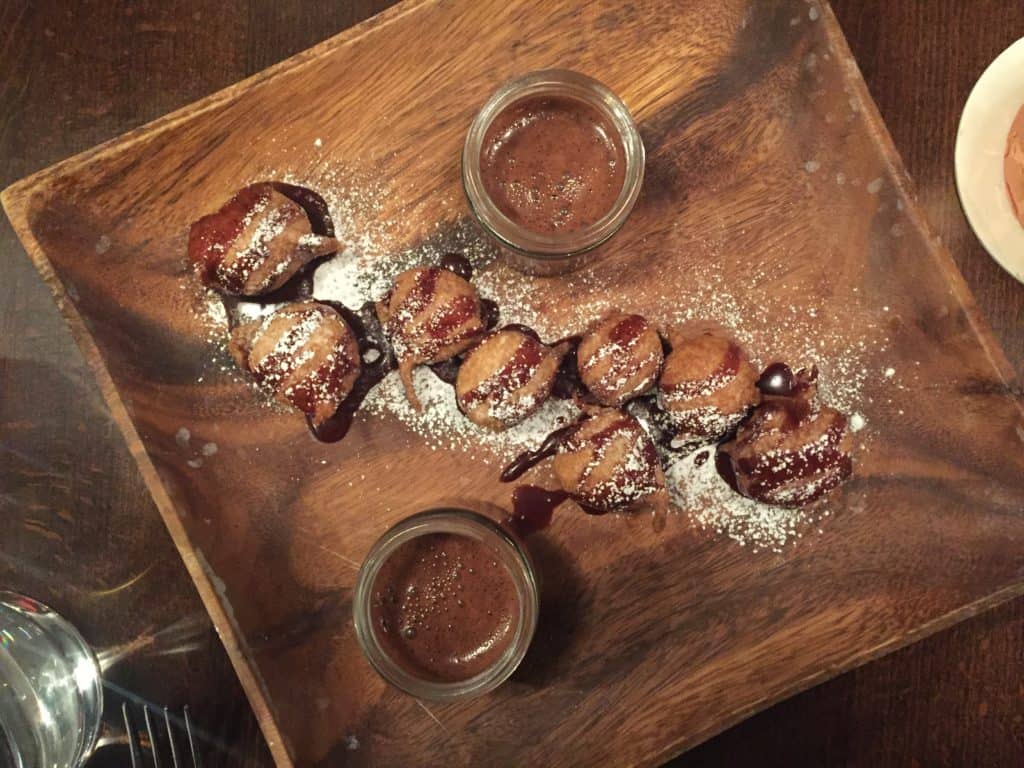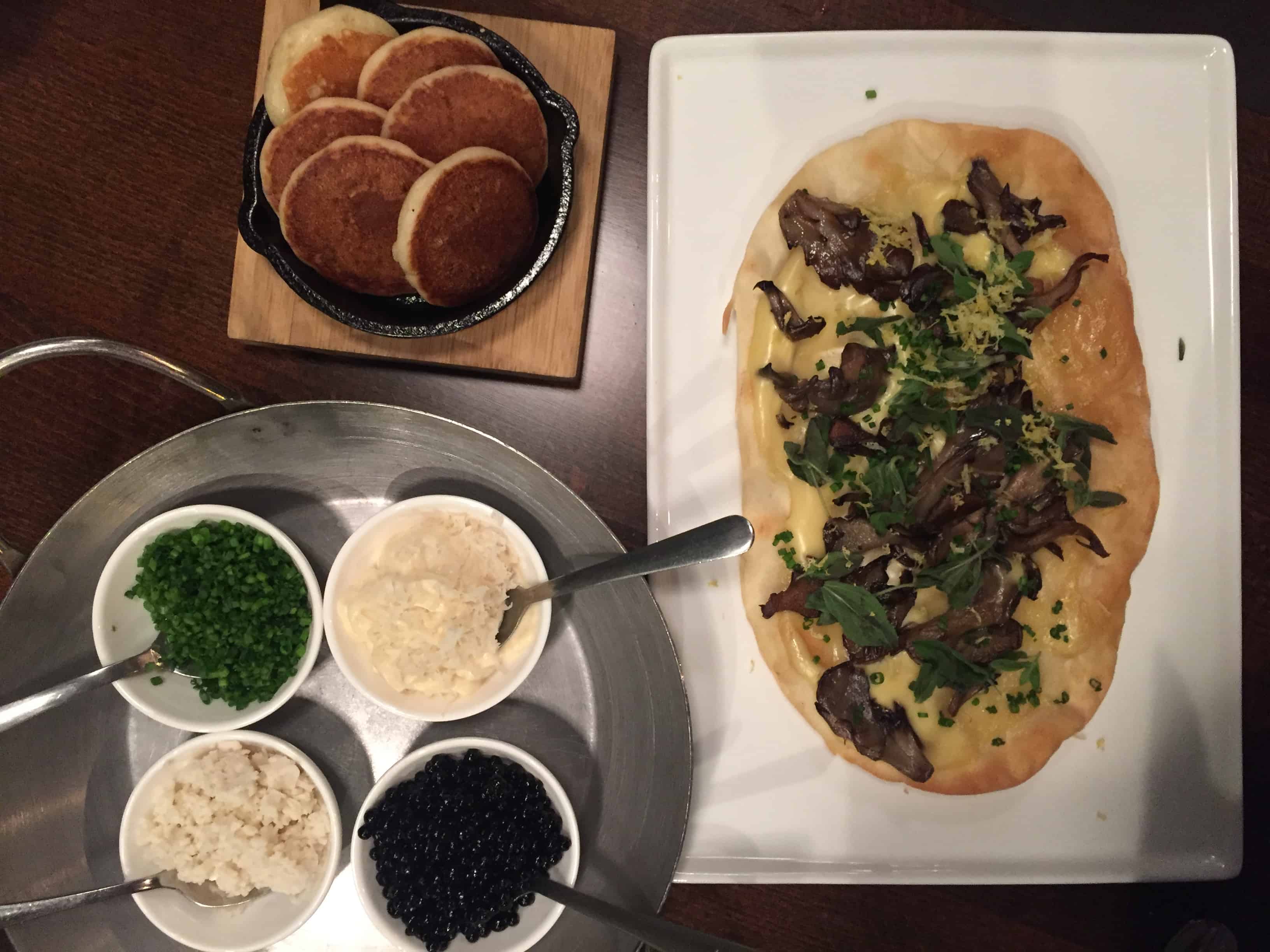In 2018, when the Vietnamese noodle shop Nightingale Nine shut down with a year left on its lease at 329 Smith Street in Carroll Gardens, the restaurateur Robert Newton asked a former employee, Champ Jones, if he wanted to fill the space for the remainder of the term. Since working for Newton, Jones had gone on to cook at the internationally renowned Eleven Madison Park in Manhattan, but with Newton’s offer, he came back to Brooklyn to execute an experiment of his own.
An omnivore, Jones had become interested in creating plant-based dishes that would appeal to meat-eaters like himself as much as they would to vegans. The result of this interest is Sans (from the French word for “without”), a twelve-month pop-up that specializes in delicate yet decadent plates of New American cuisine that eschew animal products without compromising on flavor. A skilled technician, Jones distributes fat like a French chef in confits and creamy sauces that, though cruelty-free, wouldn’t cause even the most sadistic epicurean to bat an eye.

Sans occupies an assuming storefront two doors down from the vegan-friendly coffeeshop, Planted Cafe. I visited with a companion on a recent Saturday night. We ordered two expertly mixed cocktails ($14 each), which included ingredients like “cold pressed ginger,” rosewater, and IPA; three small plates ($12-$18); two entrees ($16-$18); and a dessert ($8). The front-of-house staff consisted of just three amiable and ultimately heroic twentysomethings, who handled the hosting, food-running, busing, and bartending without breaking a sweat or forgetting an order even as the tables filled to capacity.
The best of the appetizers was the bowl of sunchokes and parsnips, served with dandelion greens and a startlingly rich and delicious cashew pesto. When pierced, the sunchokes’ innards spilled out like buttery mashed potatoes.
The maitake flatbread, a near-weightless edible platter of crispiness, seemed a bit less burdened by its mushroom topping than it might have been. But Jones’s “caviar” – a do-it-yourself tray of fluffy blintzes; horseradish; celery root; and shiny, black pearls of compressed olive – was a remarkable achievement, its brininess very plausibly standing in for a sturgeon’s unstolen offspring-in-waiting.
Neither of the two large plates would have been large enough to stand alone as a main course for a diner who doesn’t order starters. But in the conchiglioni alla vodka, each individual curvature of pasta, placed amid scattered blades of endive, was as hearty as a stuffed shell, plump with ricotta, at a checkered-tablecloth Italian joint.
The charred onion, meanwhile, made for a substantive dish almost without venturing beyond the Allium family at all: the onion was both the meat (a coil of vegetal flesh with burnt ends, decorated with fresh chive and crispy shallot) and the sauce (a thick, smoky dip). The only noticeable non-vegetable addition was a crouton or two.

We finished with the “free-form doughnuts,” warm and not too sweet, beneath powdered sugar and a tart chocolate glaze. It came with two shots of soy-derived “sipping cocoa,” as rich as any dairy-based hot chocolate in the Swiss Alps.
Because Sans (whose menu also features a pâté and a burger) is almost singularly dedicated to exploring the limits of plants’ capacity to reproduce the gustatory luxuriance of unreformed fine dining, its food may actually contain less of the greenness and crunch of fresh vegetables than the average restaurant that offers a few “healthy options” alongside its steak and chicken. But vegans – who deserve to spoil themselves sometimes, too – probably get enough of that stuff already, and it would only make the omnivores roll their eyes.
My server told me that, during the yearlong pop-up (which ends in September), the chef hopes to attract investors who’ll help him rebuild Sans as a more ambitious production elsewhere: the secondhand equipment of the modest kitchen in the inherited space on Smith Street apparently limits what Jones can do with the food, though he can already do a lot. If the project succeeds, then, Sans will presumably become fancier and pricier and, perhaps, the ultimate vegan restaurant for non-vegans, since the only people who’ll be able to afford to eat there will be New Yorkers who don’t have consciences.









